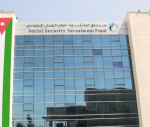You are here
Western transparency is fuelling Chinese repression
Mar 27,2019 - Last updated at Mar 27,2019
LONDON — Despite repeated government efforts to stimulate the Chinese economy, the country’s animal spirits remain depressed. And the unexpected reason for this may be the automatic exchange of financial information between the world’s major economies, which is allowing the Communist Party of China (CPC) to learn about the bank accounts that Chinese residents hold overseas.
This exposure has effectively transformed wealthy Chinese families’ financial lifeboats into torpedoes aimed back at them. Worse yet, President Xi Jinping’s anti-corruption forces can fire these weapons whenever they wish. The resulting anxiety is most likely contributing to China’s economic slowdown.
The sad irony is that the torpedoes were armed by the Paris-based Organisation for Economic Cooperation and Development (OECD), the club of developed countries that see themselves as committed to democracy and a market economy. By introducing the Common Reporting Standard (CRS) as a way to reduce tax avoidance, well-meaning Western technocrats have unleashed a programme with potentially dire long-term economic consequences for China, and for several other countries, too.
These technocrats should have felt more sympathy for those who, unlike them, live under an illiberal regime. At a time when president-for-life Xi is becoming ever more assertive and the CPC is building a centralised database to underpin a “social credit system” that will monitor the behaviour of all Chinese, it is no surprise that the study app for “Xi Jinping Thought” is reportedly the most downloaded on Apple’s Chinese App Store, ahead of even WeChat.
Under the illiberal regimes of the past, this would have triggered a deluge of jokes. But not anymore, because the CPC’s use of artificial intelligence and social media gives it a level of control over its subjects that no dictatorship has ever achieved.
The Chinese know well that whatever they might gain through their industriousness is essentially only a temporary, revocable loan from the CPC, as the recent experience of Alibaba founder Jack Ma has highlighted. Sensible Chinese entrepreneurs therefore saw it as a duty to themselves and their families to stash some of their wealth overseas.
Tens of millions of Chinese residents hold an estimated total of well over $1 trillion in undeclared assets abroad. They now face the nightmare of being treated like criminals, as the Chinese authorities may use the information received from foolhardy Western governments as a tool of repression.
Unlike almost all other countries implementing the CRS, China did not introduce a voluntary disclosure scheme allowing people to declare previously hidden overseas assets and pay a penalty to avoid criminal charges. And fleeing China is no longer an option, given the harsh immigration restrictions that potential destination countries are implementing. Little wonder, then, that wealthier Chinese residents are anxious. A sort of rolling economic purge may ensue, and the Chinese government may conveniently blame slower growth on criminal “tax dodgers”.
What the OECD’s technocrats missed is that tax avoidance was rarely the main motivation for individuals hiding money abroad. Most wanted to diversify their risks by hiding some of their wealth in safer jurisdictions. Privacy is crucial for those who live under capricious regimes or are potentially exposed to kidnapping or extortion. The freedom to choose in which country to hold one’s savings has a deeper meaning than plain financial diversification. Most of all, these Chinese residents wanted to gain the very freedom that their government denies them, including the right not to have their destinies entirely tied to those of the country where they live.
With its misguided CRS crusade against tax avoidance, the OECD is following the bad example set by the United States with the Foreign Account Tax Compliance Act (FATCA). Introduced in 2010, FATCA has had estimated implementation costs of at least $60 billion, and has reduced tax revenues outside the US by some $10-20 billion. The US government, meanwhile, has recovered only about $11.1 billion in taxes, or 0.2 per cent of its yearly tax revenues, through fewer than 57,000 voluntary disclosures, which cover resurfaced assets equivalent to about 0.1 per cent of US households’ net worth. These embarrassing and rarely cited figures make it clear that FATCA was enacted in response to outrage over a non-existent problem.
The new vulnerability of Chinese residents should make it equally clear that using anger at tax avoidance to curtail people’s right to protect themselves, or at least part of their capital, from the uncertainties of their home country is morally wrong. It is also fiscally irrelevant at best.
Residents’ overseas savings are already subject to withholding taxes in the countries where they are ultimately invested. Because taxes withheld in this way usually become tax credits in the saver’s home country, their government may well end up recovering a negative net amount of taxes after the costs of operating the cumbersome new regime are taken into account.
It is easy to dismiss the impact of CRS on wealthy Chinese as simply a problem for the rich. And most of the comments under one of the few news articles about the issue exude frightening xenophobic schadenfreude, rather than compassion for economic fugitives from a repressive regime.
That stance is both morally alarming and economically short-sighted. Sinking these Chinese entrepreneurs’ lifeboats may prove deeply demotivating, with potentially significant adverse effects on economic efficiency and growth. If that happens, China’s 1.4 billion people would not be the only ones to suffer.
Antonio Foglia, a board member of Banca del Ceresio, is a member of the Global Partners’ Council of the Institute for New Economic Thinking. Copyright: Project Syndicate, 2019. www.project-syndicate.org












